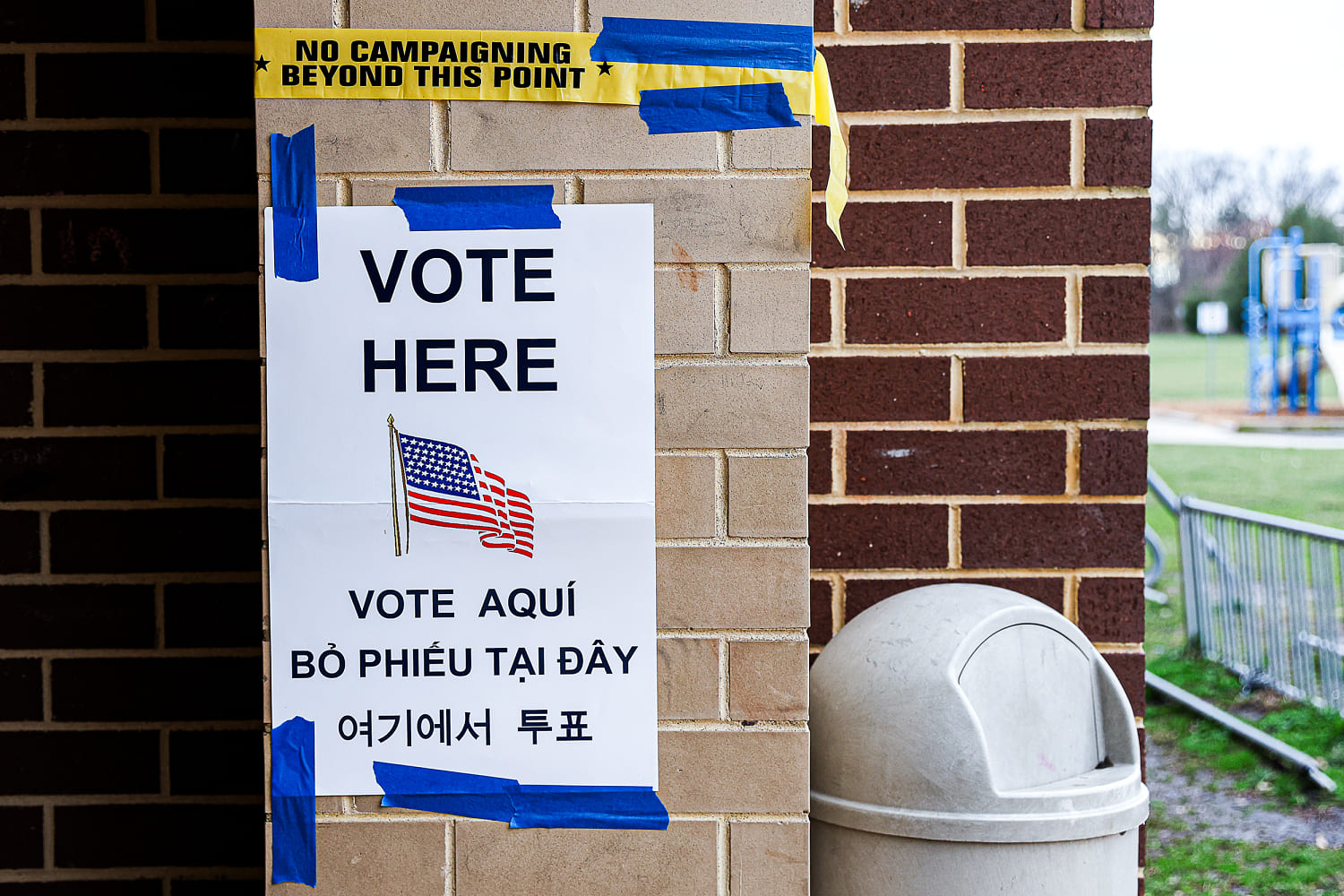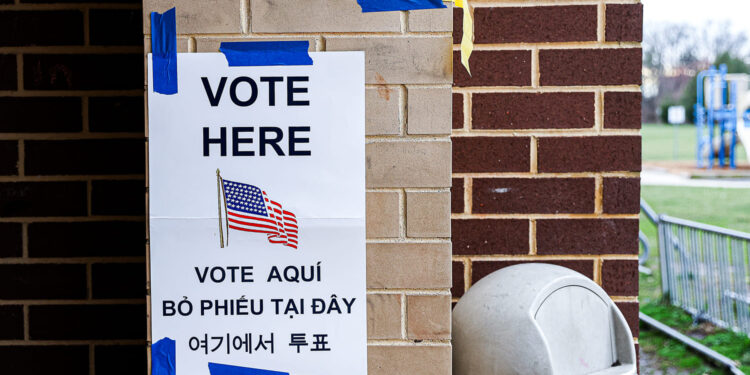
Asian American voters favor President Joe Biden over Donald Trump, a new survey has found. But experts say that doesn’t mean Biden has clinched the Asian American vote.
The survey, examining Asian American voter attitudes conducted April 4 to May 26, suggests just under half of Asian American voters, 46%, would choose Biden, while less than one-third, 31%, would vote for Trump if the election were conducted at the time of the survey. Nearly a quarter of the voters surveyed would prefer a third-party candidate, said they were undecided or refused to answer.
The 2024 Asian American Voters Survey still shows an 8-point shift away from Biden since 2020. Biden’s 15-point margin contrasts with the nearly 30-point edge he held over Trump among those voters in the 2020 election, according to an NBC News exit poll.
The new survey most likely points to a lack of enthusiasm for Biden, underscoring “trouble” for his campaign, said Janelle Wong, senior researcher at the nonprofit group AAPI Data, one of the organizations involved in the report.
“Polls tend to overestimate turnout in general, and in this situation, there is real indication that Asian American voters are not fired up for Biden,” Wong said. “Although we are not seeing a mass movement toward Trump in our community, we are seeing a potentially problematic trend for the Biden campaign among this fairly loyal bloc of Democratic-leaning voters.”
The survey — released Wednesday by the nonpartisan groups AAPI Data, APIAVote, Asian Americans Advancing Justice and AARP — polled 2,479 registered voters by telephone and online. It reported an overall margin of error of plus or minus 2.7 percentage points, though that was much higher for individual groups, including Chinese Americans.
The survey was conducted before the first presidential debate last month, in which Biden performed poorly, leading to concerns and criticism from Democrats, and before Trump was convicted of 34 felony counts related to falsifying business records.
It found that 44% of Asian Americans view Biden unfavorably, while 62% view Trump unfavorably.
Though Biden’s support dropped, Trump gained only 1 point since the last election, compared to findings from the 2020 Asian American Voter Survey. Chinese American voters surveyed appeared to be driving a slight move toward Trump, Wong said, even though he has been criticized for having scapegoated the community at the start of the Covid-19 pandemic. A higher proportion of those surveyed still said they are voting for Biden.
“Most polls show that Chinese Americans blame Trump at least in part for a rise in anti-Asian sentiment, but this has never meant he receives less support from Chinese Americans than prior to the pandemic,” Wong said.
Chinese, Filipino, Indian, Korean, Japanese and Vietnamese registered voters were offered the survey in English, in addition to three other Asian languages.
Results found that 42% of those Asian American voters identified as Democrats, while 22% identified as Republicans. Twenty-seven percent identified as independent. Asian Americans still showed strong support for Democrats, preferring the party’s candidates over Republicans in House races by 51% to 30%. They expressed an almost identical division in the Senate races, the survey found.
When it comes to important issues, 86% of Asian American voters ranked jobs and the economy as a top priority. Inflation and health care were tied for second, with 85% saying the issues were “extremely” or “very” important in deciding how to vote in November. Crime and education also took a front seat.
Wong said that Asian Americans who were surveyed see the GOP as more effective on inflation and the economy, current priorities for Asian Americans, but that based on the survey, that doesn’t seem to translate to more votes for Republicans in Congress from Asian Americans.
Though experts mentioned that Asian Americans haven’t shown overwhelming enthusiasm for presidential candidates, there’s still significant interest in the election. Ninety percent said they plan to vote for president, in addition to congressional seats and other offices, in November. However, a significant proportion of the electorate, 42%, hasn’t been contacted by either party.
Nathan Chan, assistant professor of political science at Loyola Marymount University in Los Angeles, said the lack of campaign outreach to Asian Americans has remained a “disappointing constant” in elections over time.
“Both campaigns are losing out on both solidifying more support for the party’s candidate or winning potential support from undecided Asian American voters,” Chan said. “Unlike the rest of the American population, where there are less undecided voters nowadays, there still is a subsection of Asian American voters that are seemingly up for grabs. And it’s up to campaigns to do the work to reach out to Asian American voters.”
Part of the problem, he said, is that campaigns and parties tend to stereotype Asian American voters as “politically apathetic.” But researchers point out they’ve been turning out in record numbers in every federal election since 2016.
“The second thing is that they stereotype us with potential issues that they think that we’re interested in, such as education,” Chan said. “That is important, but it doesn’t even land in the top three in terms of ranking the issues that we’re interested in. So campaigns need to do a better job getting to know Asian American voters.”
Chan said that, despite Biden’s poor debate performance and Trump’s convictions, he doesn’t expect Asian Americans to move much in their opinions unless parties launch significant outreach efforts.
“Voters now have more questions, if they didn’t already have them, about [Biden’s] incapacity for office, but the survey poll also concluded right before Trump became the first president convicted of felony crimes,” he said. “So much happens with the context that … there’s some kind of equilibrium.”







